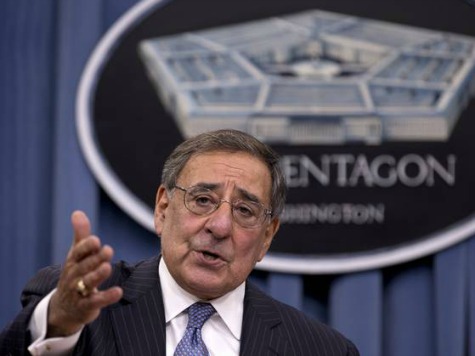(AP) Senate passes $631 billion defense bill
By DONNA CASSATA
Associated Press
WASHINGTON
The Senate overwhelmingly approved a sweeping, $631 billion defense bill Tuesday that sends a clear signal to President Barack Obama to move quickly to get U.S. combat troops out of Afghanistan, tightens sanctions on Iran and limits the president’s authority in handling terror suspects.
Ignoring a veto threat, the Senate voted 98-0 for the legislation that authorizes money for weapons, aircraft and ships and provides a 1.7 percent pay raise for military personnel. After a decade of increasing Pentagon budgets, the vote came against the backdrop of significant reductions in projected military spending and the threat of deeper cuts from the looming “fiscal cliff” of automatic spending cuts and tax increases.
The bill reflects the nation’s war-weariness after more than a decade of fighting in Afghanistan, the messy uncertainty about new threats to U.S. security and Washington belt-tightening in times of trillion-dollar-plus deficits. Spending solely on the base defense budget has nearly doubled in the past 10 years, but the latest blueprint reins in the projected growth in military dollars.
The bill would provide some $526 billion for the base defense budget, $17 billion for defense programs in the Energy Department and about $88 billion for the war in Afghanistan. House and Senate negotiators must reconcile their competing versions of the bill in the next few weeks.
Reacting to the relentless violence in Syria, the Senate voted 92-6 to require the Pentagon to report to Congress on the ability of the U.S. military to impose a no-fly zone over Syria.
Sen. John McCain, R-Ariz., who has pushed for greater U.S. military involvement to end the Syrian civil war, sponsored the amendment. Obama on Monday warned Syrian President Bashar Assad not to use chemical and/or biological weapons against his people as the U.S. and its allies weigh military options.
But Sen. Rand Paul, R-Ky., said it was a “bad idea to discuss contingency plans for war.”
The amendment specified that it should not be construed as a declaration of war or an authorization to use force.
Last year, Obama and congressional Republicans agreed on nearly $500 billion in defense cuts over 10 years. If the two sides fail in the next month to avert the “fiscal cliff” the Pentagon would face an additional $55 billion in automatic, across-the-board cuts after the first of the year.
Not far from the Capitol, a coalition of retired military leaders, administration officials and lawmakers pleaded with the president and Congress to address the nation’s debt, calling it the greatest threat to national security. The group of prominent Republicans and Democrats said the United States can spend less on defense while still maintaining its military superiority.
The administration has threatened to veto the Senate bill, strongly objecting to a provision restricting the president’s authority to transfer terror suspects from the U.S. prison at Guantanamo Bay, Cuba, to foreign countries. The provision is in current law.
The Senate also voted to restrict the transfer of detainees held at Guantanamo to prisons in the United States.
Further stoking the debate over U.S. detention policy _ and setting up a fight with the House _ the Senate also added a provision saying the government may not detain a U.S. citizen or legal resident indefinitely without charge or trial even if there is a declaration of war or the authorization to use military force.
Current law denies suspected terrorists, including U.S. citizens seized within the nation’s borders, the right to trial and subjects them to the possibility they would be held indefinitely. It reaffirms the post-Sept. 11 authorization for the use of military force that allows indefinite detention of enemy combatants.
That provision had created a conservative backlash, and a coalition of liberal Democrats and libertarian Republicans pushed for the new provision.
The bill sends a clear message to Obama and the military to accelerate the withdrawal of U.S. combat forces from Afghanistan. On a strong bipartisan vote of 62-33 last week, the Senate endorsed Obama’s timetable to withdraw all combat troops by the end of 2014 but pressed for a quicker pace, without specifying how that would be achieved.
Obama and the military are engaged in high-stakes talks about the pace of drawing down the 66,000 U.S. combat troops there now.
The bill added stringent new sanctions on Iran’s energy and shipping sectors in a fresh attempt to hobble the Islamic Republic’s economy and hamper its nuclear ambitions.
The sanctions build upon penalties that Congress has passed _ and Obama has implemented _ that target Tehran’s financial and energy sectors.
Officials in Washington argue that the sanctions have undermined Tehran’s economy and robust oil sales, thwarting its suspected pursuit of a nuclear weapon. Iran insists its nuclear program is for peaceful purposes.
Sens. Bob Menendez, D-N.J., and Mark Kirk, R-Ill., who have shepherded sanctions bills through Congress, sponsored the latest package that also would close a major loophole _ the ability of Iran to circumvent sanctions and barter oil for precious metals. Turkey has been bartering gold for oil.
The sanctions would designate Iran’s energy, port, shipping and ship-building sectors as “entities of proliferation” and prohibit transactions with these areas. The legislation also would penalize individuals selling or supplying commodities such as graphite, aluminum and steel to Iran, all products that are crucial to Tehran’s ship-building and nuclear operations.
The administration had complained that the new sanctions were duplicative and unnecessary.

COMMENTS
Please let us know if you're having issues with commenting.